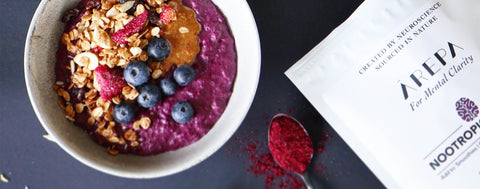Meet the cousin to Dry July … Junk Free June, a fund-raising initiate started in 2015 by the Cancer Society. Junk Free June has two platforms, encouraging people to make a ‘junk-free’ lifestyle choice to reduce cancer risk, while also acting as a fund-raising initiative for people wanting to donate to cancer research.
Junk Free June initially focused on ditching junk food, but it’s acknowledged that everyone’s junk is different, giving each person scope on what junk to send packing. This could be committing to junk food free, clearing the pantry of junky ingredients, junk-free the kid’s lunch boxes … or even shifting your junk off the couch … quitting the junk time spent on devices … there is plenty of junk in modern life we can do without. In this blog we encourage all to check whether there is any ‘junk’ in your body-care products.
Our body is designed to ‘accumulate’, from nutrients absorbed through our digestive tract to thoughts that shape our view of the world.
We are also designed to eliminate what we don’t require or what doesn’t serve us well, such as toxins. Bioaccumulate, however, refers to accumulating toxins faster than the rate the body can detoxify them. Unfortunately, the cosmetic industry can be an area of concern with a multitude of chemicals that in some personal care products that we slather over that great absorptive organ, the skin.
When it comes to bioaccumulation of potential toxins used in skincare, many are linked to carcinogenicity and hormone disruption (with the highest hormone disruption risks for infants, pregnant women, and teenagers). There are many areas of ‘junk’ in skincare to be aware of, here are some of the most common areas of concern that are best to reduce or avoid where possible:
Fragrances
Phthalates used in everything from fragranced body care products to household items that require countering fragrances to cover up nasty chemical smells (eg highly perfumed laundry detergent). Phthalates are one of the major oestrogen mimickers that are contributing to oestrogen dominance, fertility problems, reproductive cancers, neurotoxicity, developmental problems, respiratory disorders, and childhood obesity1. Phthalates are not listed on labels as they are a part of trade-secret fragrance compounds. Safer choices are products containing naturally sourced fragrances, essential oils, or products branded phthalate-free.
Preservatives
Parabens are a major group of preservatives and include propyl, isopropyl, methyl, butyl, ethyl, heptyl, and isobutyl parabens. Common codes for parabens include E218, E214, E216, and E209. Parabens also mimic oestrogen and accumulate in body fat and breast tissue.
Reduce paraben exposure by using products that are preserved with essential oils, vitamin E, rosemary extract, or other natural antioxidants/preservatives approved by Cosmetic Organic Standards or EcoCert2.
Formaldehyde and formaldehyde-releasing preservatives are one of many known carcinogens that are still allowed in cosmetics and body-care products. These chemicals have been associated with increased cancer risk, hormone disruption, developmental and reproductive toxicity, and are known to bioaccumulate in the body and environment. 3
Foaming Agents
1,4-Dioxane – is used in many soapy foaming products such as shampoo, soap, bubble bath, toothpaste, detergents, etc. 1, 4-Dioxane is another compound associated with increased cancer risk and birth defects. 3
1,4-Dioxane is not listed in the ingredient label as it is a compound created by ethoxylation, a reaction of certain ingredients. Organics standards do not allow ethoxylation within manufacturing, so the best way to avoid 1,4-Dioxane is to buy organic.
Chemical sunscreens
Chemical-based sunscreens are linked to interfering with thyroid hormone production, disrupting the endocrine system, and allergic reactions. 3 Aerosol sunscreens are particularly troublesome, dispersing tiny particles that are easily breathed in, often along with other potentially harmful preservatives and synthetic fragrances. Adopt wise ways to prevent sunburn (cover-up, shade, avoid peak sunburn times) and use natural mineral sunblocks such as zinc oxide on exposed skin.
Cosmetic Teflon
PTFE (Teflon®) and PFOA – these are fluorinated compounds used in the manufacture of certain cosmetic powders to help make them silky sheer (eg foundation powders, eyeshadow, blushers, etc). These compounds have been associated with delayed menstruation, breast development, and cancers. 3 Safer choices are reputable brands based on natural ingredients or those branded PFOA-free.
We can also take Junk Free June into a global perspective by actioning ways to reduce packaging that becomes junk. Most of us are well underway with recycling, but we can also reduce the overall consumption of packaging. Look for products that require less packaging material, make use of refill stations, or buy larger containers when possible to cut your packaging consumption. Use Junk Free June as a challenge amongst family and friends to reduce the volume of junk sitting on the curbside each week. Everyone is a winner here.
Article by - Angela Frieswyk is a registered Medical Herbalist and Holistic Nutritionist practicing at Huckleberry’s Wild Herbs Natural Health Shop and Dispensary in Tauranga.
References:
- Environment International: Volume 97, December 2016, Pages 212-236. A global assessment of phthalates burden and related links to health effects. https://www.sciencedirect.com/science/article/pii/S0160412016304147https://www.hellonaturalliving.com/quick-guide-to-preservatives-in-organic-skincare/
- http://www.safecosmetics.org/get-the-facts/chem-of-concern/




